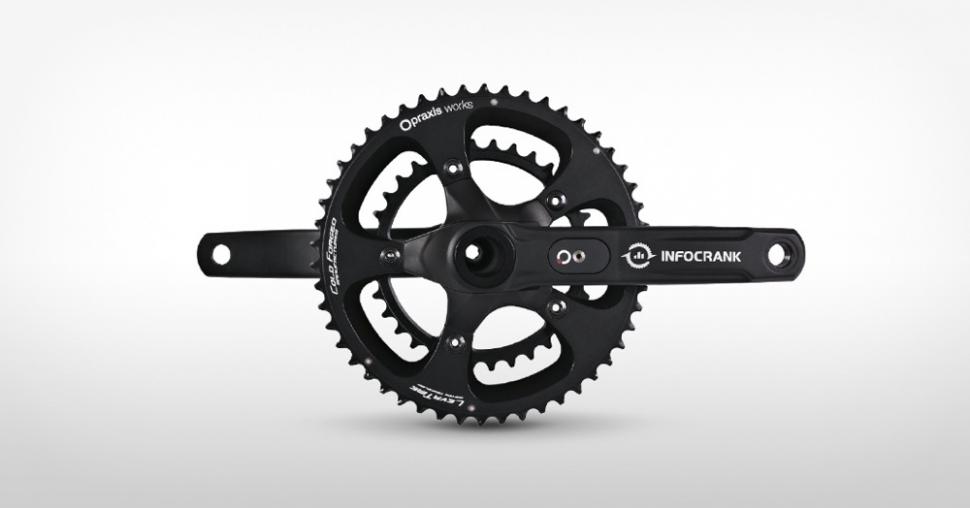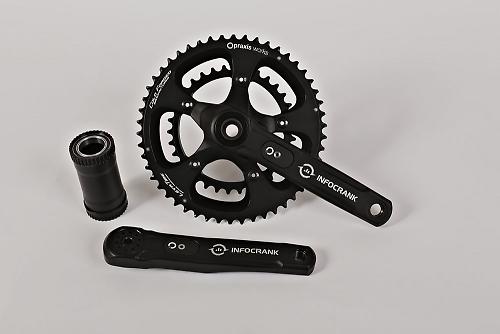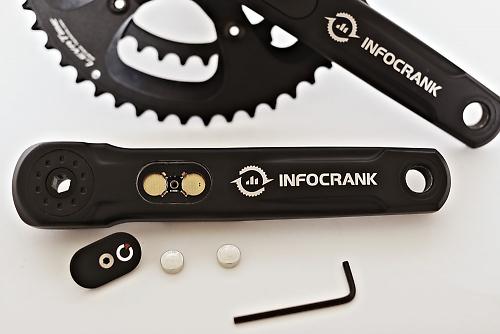- News
- Reviews
- Bikes
- Components
- Bar tape & grips
- Bottom brackets
- Brake & gear cables
- Brake & STI levers
- Brake pads & spares
- Brakes
- Cassettes & freewheels
- Chains
- Chainsets & chainrings
- Derailleurs - front
- Derailleurs - rear
- Forks
- Gear levers & shifters
- Groupsets
- Handlebars & extensions
- Headsets
- Hubs
- Inner tubes
- Pedals
- Quick releases & skewers
- Saddles
- Seatposts
- Stems
- Wheels
- Tyres
- Tubeless valves
- Accessories
- Accessories - misc
- Computer mounts
- Bags
- Bar ends
- Bike bags & cases
- Bottle cages
- Bottles
- Cameras
- Car racks
- Child seats
- Computers
- Glasses
- GPS units
- Helmets
- Lights - front
- Lights - rear
- Lights - sets
- Locks
- Mirrors
- Mudguards
- Racks
- Pumps & CO2 inflators
- Puncture kits
- Reflectives
- Smart watches
- Stands and racks
- Trailers
- Clothing
- Health, fitness and nutrition
- Tools and workshop
- Miscellaneous
- Buyers Guides
- Features
- Forum
- Recommends
- Podcast
TECH NEWS
 Verve Cycling 21
Verve Cycling 21Verve Cycling to launch InfoCrank power meter
Australian brand Verve Cycling says that it’s just a few weeks away from delivering its first crank-based power meters.
The power meter market is getting ever busier, the Verve InfoCrank coming in at about the mid-point of the market in terms of price with systems starting at US$1,750 (which is about £1,040 at today’s exchange rate).
InfoCrank measures each leg independently, unlike the Stages crank-based system, for example, that measures just your left leg and doubles it, assuming that your legs are producing equal amounts of power.
It gives you your cadence (pedal revolutions per minute) using a magnetic sensor because, Verve says, a magnetic sensor is more accurate and requires less power than other methods of taking your cadence, and it has faster start-up and response times.

The system also measures your torque (in Nm), multiplying that by your cadence to give your power (watts).
So how do Verve measure torque?
“InfoCrank is engineered from the outset to house the high-precision KIP power measuring system,” says Verve Cycling. “CNC-controlled pockets placed in the load path control local strains. Measuring devices transmit accurate, repeatable power figures.”
For more on the KIP power meter system, visit www.kipcycling.com.
Verve reckon that you can use InfoCrank “anywhere you can ride your road bike”, and they claim that it’s “almost unbreakable”. They say that they’ve been commissioned by the Australian Institute of Sport to design versions for track, MTB and BMX.
It’s said to be waterproof (IPX7, which means it can survive being submerged in a metre of water for 30mins) and to compensate for variations in temperature automatically.
How accurate is the system? Verve is at pains to point out that, “With relative measurements, readings should have reference to context, as in ±2% of the system’s maximum reading capability. Accuracy also depends on how cadence is measured, and on the A-D [analog-to-digital] converter’s sampling rate.”
That said, they claim, “InfoCrank shows you that most of the time you ride the bike with loads that can be measured accurately at ±1%, while other times, because the load is less, it may be rather less accurate, ±1.5–1.75%.”
Verve also claim that, “Under track testing, InfoCrank produced cleaner cadence and torque data than the SRM. The InfoCrank seems to respond faster to torque changes. The high-speed data generated from the InfoCranks appears to be of high quality with a good signal to noise ratio.”
Of course, SRM might have a different tale to tell; we’re just reporting Verve’s claims. We’ve not used the InfoCrank system.

InfoCrank runs on small SR44 silver oxide cells, two in each crank. These are available all over the place. Verve say that if you ride three hours a day, four days a week, you’ll only need to replace the batteries once a year, and you can easily do it yourself.
Verve’s first chainset comes in a 110mm bolt-circle diameter (five bolts) with compact chainrings – 50-tooth and 34-tooth. A 52/36-tooth model will be available too. It uses a 30mm axle with forged chainrings from Praxis. (Praxis won’t make a 53-tooth 110BCD chainring, but in theory you could fit one from another brand).
InfoCrank will work with a 68mm wide English threaded bottom bracket, (most 24mm axle installations using threaded bearing cups can be converted to accept the 30mm axle) or with a BB30/PF30 frame. There are no BB86 or BB90 options, for example, at the moment. Check the Verve Cycling website for more information on compatibility.
InfoCrank uses ANT+ wireless communication protocol so it can talk to an ANT+ compatible bike computer, like a Garmin Edge, for instance. Of course, that computer needs to have options for power readings, including left/right power balance.
If you don’t already have a compatible bike computer, InfoCrank offers GPS-enabled computers that will do the job.
Verve say that you’ll never need to recalibrate the InfoCrank unless you damage your crank arm in a crash. In that case, you can just hit ‘calibrate’ on your bike computer to reset it.
Go to www.vervecycling.com where you’ll soon be able to pre-order.
Mat has been in cycling media since 1996, on titles including BikeRadar, Total Bike, Total Mountain Bike, What Mountain Bike and Mountain Biking UK, and he has been editor of 220 Triathlon and Cycling Plus. Mat has been road.cc technical editor for over a decade, testing bikes, fettling the latest kit, and trying out the most up-to-the-minute clothing. He has won his category in Ironman UK 70.3 and finished on the podium in both marathons he has run. Mat is a Cambridge graduate who did a post-grad in magazine journalism, and he is a winner of the Cycling Media Award for Specialist Online Writer. Now over 50, he's riding road and gravel bikes most days for fun and fitness rather than training for competitions.
Latest Comments
- BikingBud 6 min 5 sec ago
Absolutely this, riders gonna crash it is a race. And tempering any aspect of that competitiveness would detract from the race but developing...
- Steve K 46 min 2 sec ago
I'd be very interested to see the venn diagram of people who are currently complaining about Motability and people who pray in aid disabled people...
- Capt Sisko 1 hour 5 min ago
One of the reasons I like Torq products is because they do not use Sortbitol as a sweetener. As those that are sensitive to Sorbital will know, and...
- webbierwrex 1 hour 26 min ago
I came to say the opposite, I always liked Giro shoes but they're insanely narrow. I hope they did change the fit.
- Aluminium can 6 hours 16 min ago
Frame weight is about a hundred grams less than a CAAD 12 disc, which can be picked up cheap these days on gumtree. Heck, get the CAAD12 non disc...
- Dnnnnnn 10 hours 10 min ago
You're too kind. They just seem to be unpleasant trolls.
- Jogle 11 hours 4 min ago
And in Southampton today we had another example of those entitled ambulances going through red lights without a care for anyone else!...
- TheBillder 12 hours 19 min ago
The spokes and nipples are not anodised for environmental reasons, but the rims are. Which is a lot more metal. Hmm...
- Rendel Harris 12 hours 58 min ago
I'm afraid so, anything operated by TfL apart from the Woolwich ferry and the Silvertown Tunnel bike bus when it opens next month.
- chrisonabike 13 hours 40 min ago
That's a bit hard on the cat...
Add new comment
7 comments
I assume by 'Nm' you are referring to newton-metres, the SI unit of torque? You should be aware that when combining unit symbols to indicate a compound unit, the SI requires either a half-high dot ('N·m') or a space ('N m') between the unit symbols.
The value for this doesn't appear to be too bad considering it's the complete crank and chainrings etc, not exactly cheap, but when you consider the stages ones are just a left side crank arm this looks quite good, Especially if the prices start to come down in a few years.
Nice to see them using the Praxis works chain rings, they really are great.
Will a power meter ever reach a price point to hit a regular cyclist market?
The Stages meters are starting at $700 now - I think that's getting damn close. Sadly the UK price isn't as attractive, largely due to the whopping 20% VAT that Americans avoid.
Interested to see what DC Rainmaker, THE powermeter guru, makes of them.
Agreed. That guy's site is indispensable.
Why doesn't someone make a power meter in the spindle? Seems like it is the cheapest part of the crankset componentry to manufacture (also has lowest rotational energy